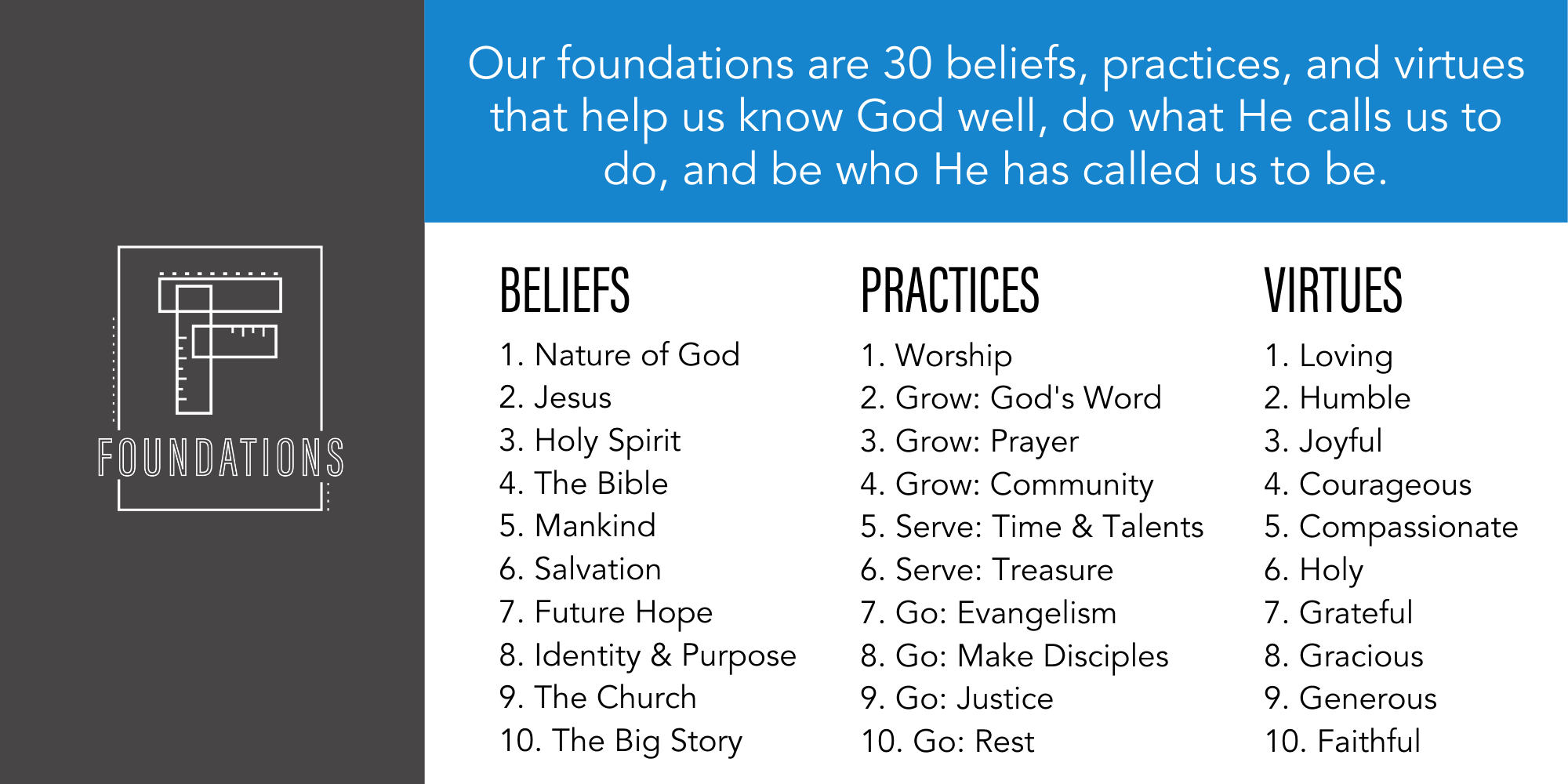Foundations Blog
We’re in a new series called “Foundations” which builds off of Jesus’ metaphor in Matt 7: “A house built on sand will never be able to stand BUT a house that’s built on the rock will never be able to fall.”

Practice #8 GO MAKE DISCIPLES - Day 4
This week, we’re in Practice #8: Go Make Disciples. We will look at four ways the New Testament describes discipleship, or the process of making more followers of Jesus. These descriptors include the words mutual, didactic, edifying, and holistic.
Today, let’s consider that discipleship is holistic, meaning that its aim is both internal change (thinking rightly about God) and external change (behaving rightly according to God). Let’s read from Deuteronomy 6:4-9 (NET):
Hear, O Israel: The Lord is our God, the Lord is one! You must love the Lord your God with your whole mind, your whole being, and all your strength. These words I am commanding you today must be kept in mind, and you must teach them to your children and speak of them as you sit in your house, as you walk along the road, as you lie down, and as you get up. You should tie them as a reminder on your forearm and fasten them as symbols on your forehead. Inscribe them on the doorframes of your houses and gates.
In this passage, Moses tells the fledgling nation of Israel that they are to be different than the people around them. Unlike those who worship capricious and unreliable gods, they are worshippers of the One True God, Yahweh. And His demand is not empty ritual or partial acknowledgement; He wants single-hearted and single-minded devotion. He wants them to love Him with everything they have because that is how He loves them!
This commandment is repeated in Matthew 22:36-40, where Jesus tells His followers that their primary goal in life is in loving God with everything they have. Discipling others begins and ends with this question: How can I help you to be wholeheartedly devoted to God?
Let’s close with some reflection questions:
- What does it mean to love God with my whole mind, my whole being, and all my strength?
- This love for God works itself out both internally (thoughts) and externally (behavior). Do my internal and external selves align?
- As I help others follow Jesus, how can I remind them that it’s not about “doing the right things” but about loving God with all they have?
- What would it look like if I asked another person in my sphere of influence, “How can I help you to be wholeheartedly devoted to God?”
Published on 11-18-2021 @ 4:48 AM CDT
